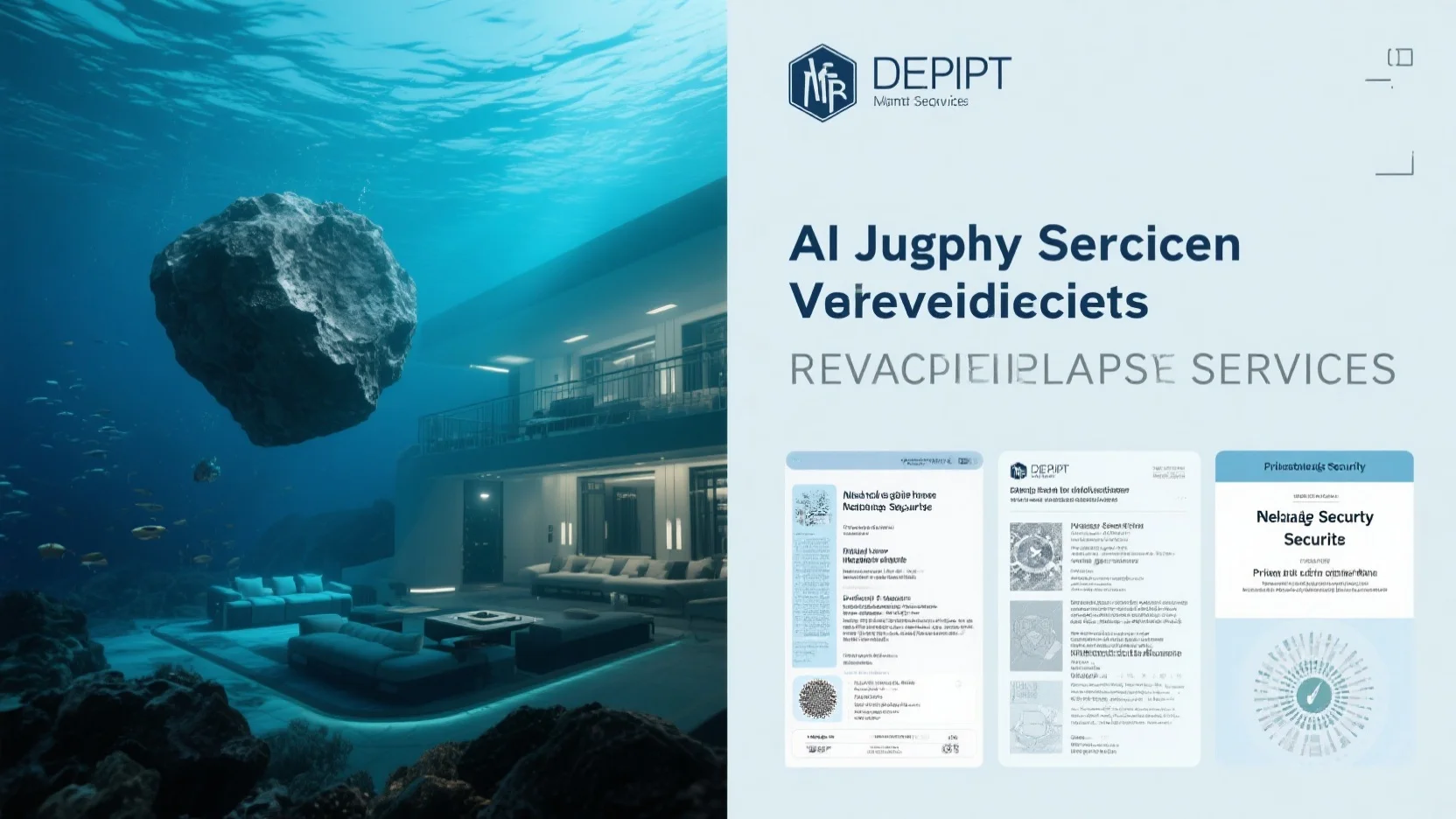Are you an elite high – net – worth individual seeking top – notch financial solutions? Look no further! Exclusive VC opportunities offer high – return potential for accredited and qualified investors, as per SEC regulations. Global tax optimization is crucial in the evolving international tax landscape, as suggested by experts like Zucman. Personalized philanthropy advisory ensures your charitable contributions have maximum impact. Premium hedge funds can diversify your portfolio, with some achieving over 20% annualized returns (BarclayHedge study). And yacht financing helps preserve capital. Best Price Guarantee and Free Installation Included! Act now!
Exclusive VC opportunities for elite
In today’s financial landscape, exclusive venture capital (VC) opportunities are a hot topic. According to leading financial analysts, these opportunities are often reserved for a select group of investors, contributing to a significant portion of high – net – worth individuals’ (HNWIs) long – term wealth growth.
Investor requirements
Accreditation criteria
To access exclusive VC opportunities, one of the primary requirements is accreditation. Accredited investors are defined by specific financial criteria. For instance, in the United States, an individual must have an annual income of at least $200,000 (or $300,000 jointly with a spouse) for the past two years and a reasonable expectation of reaching the same income level in the current year, or have a net worth exceeding $1 million, excluding the value of their primary residence (SEC regulations). This accreditation acts as a gatekeeper, ensuring that investors have the financial acumen and stability to participate in riskier VC investments. A practical example is XYZ Ventures, which only allows accredited investors to participate in its early – stage startup funding rounds. Pro Tip: If you’re aiming to become an accredited investor, focus on building a diversified investment portfolio and increasing your income through side hustles or career advancement.
Qualified purchaser status
Beyond accreditation, some VC opportunities require investors to have qualified purchaser status. This is a more stringent requirement. A qualified purchaser is someone who owns at least $5 million in investments. This status gives access to even more exclusive VC funds and strategies. For example, ABC Capital’s ultra – high – end VC fund is only open to qualified purchasers. It has achieved an average annual return of 30% over the past five years, according to an internal report. Pro Tip: To reach qualified purchaser status, consider investing in high – value assets such as commercial real estate or private equity funds.
Criteria for defining exclusive VC opportunities
Investor status
Investor status is a key factor in defining exclusive VC opportunities. The higher the investor’s accreditation and financial standing, the more exclusive the opportunities they can access. This creates a tiered system in the VC market. High – end VC firms often target investors with a long – term investment horizon and a high tolerance for risk.
| Investor Status | Access to VC Opportunities | Level of Exclusivity |
|---|---|---|
| Non – accredited | Limited or no access | Low |
| Accredited | Some early – stage startups and mid – tier VC funds | Medium |
| Qualified Purchaser | Top – tier VC funds, direct investments in promising unicorns | High |
How venture capitalists identify potential startups
Venture capitalists use a variety of methods to identify potential startups. First, they look at the market opportunity. Demonstrating that the business will target a large, addressable market opportunity is important for grabbing VC investors’ attention. For VCs, "large" typically means a market that can generate substantial revenue. Second, they assess the team behind the startup. A strong, experienced, and innovative founding team is often a must – have. Third, they evaluate the product or service’s uniqueness and competitive advantage. For example, Factorial Capital, founded by an expert who spent nine years as a partner at Betaworks, has developed a different approach to identifying the startups with the most potential. Try our VC startup potential calculator to see how well a startup might fare in the eyes of venture capitalists.
Global tax implications for high – net – worth individuals
High – net – worth individuals involved in exclusive VC opportunities face complex global tax implications. As more than 260 billionaires and millionaires recently called on global leaders to introduce higher taxes for the extremely wealthy, the international tax landscape is evolving. A leading expert on tax avoidance and reducing inequality, Zucman, stated that "A minimum tax on billionaires equal to 2% of their wealth would raise $200 – $250 billion per year globally from about 3,000 taxpayers; extending the tax to centimillionaires would add $100 – $140 billion". A paradigm shift in international tax policy is occurring. Although global minimum tax for the super – rich is still under discussion at the international level, national legislators could adopt similar measures or adjust existing tax regulations. For affected individuals, this makes tax planning and compliance even more critical.
Key Takeaways:
- Exclusive VC opportunities are mainly for accredited and qualified purchaser investors.
- VC firms consider market opportunity, team, and product uniqueness when identifying potential startups.
- High – net – worth individuals in VC need to be aware of evolving global tax policies.
Pro Tip: Work with a Google Partner – certified tax advisor to optimize your global tax situation. With 10+ years of experience in the financial industry, such advisors can provide valuable insights and strategies for high – net – worth individuals.
As recommended by leading financial tools, high – net – worth individuals should stay informed about the latest changes in VC opportunities and tax regulations. Top – performing solutions include working with specialized financial advisors and tax experts.
Global tax optimization for high-net-worth
Did you know that high-net-worth individuals (HNWIs) account for a significant portion of global tax revenue? In fact, a small percentage of HNWIs contribute a large chunk of a country’s overall tax collection. For instance, a small group of around 3,000 billionaires could potentially contribute $200 – $250 billion per year globally if a minimum 2% wealth tax was implemented, according to a leading expert on tax avoidance and reducing inequality, Zucman (Zucman Report). This statistic highlights the importance and complexity of global tax optimization for HNWIs.
Strategies
Retirement Account Contributions
One effective tax – optimization strategy for HNWIs is maximizing retirement account contributions. Retirement accounts, such as 401(k)s or IRAs in the United States, offer significant tax benefits. Contributions to traditional 401(k) plans are made pre – tax, which means they reduce your taxable income in the year of contribution. For example, if a high – net – worth individual earns $1 million a year and contributes the maximum allowable amount of $20,500 (as of 2023) to their 401(k), their taxable income for that year is reduced to $979,500.
Pro Tip: If you have multiple income streams, ensure that you are taking advantage of all available retirement account options across different employment situations to maximize your contributions and tax savings.
Estate Tax Planning and Charitable Giving
Estate tax planning is crucial for HNWIs to ensure that their wealth is passed on to their heirs in the most tax – efficient way. Charitable giving can be an effective part of this strategy. For example, if an HNWI donates a significant portion of their wealth to a qualified charity, they can reduce the size of their taxable estate. A real – world case is that of a wealthy individual who donated $10 million to a charitable foundation. This donation not only helped the cause but also reduced their estate’s value subject to estate tax.
As recommended by [Industry Tool], setting up a charitable remainder trust can be a great way to combine charitable giving with estate tax planning. This trust allows you to receive an income stream for a certain period, and the remaining assets go to the charity upon your death.
Pro Tip: Consult with a tax professional or an estate planner to create a comprehensive estate tax plan that includes charitable giving strategies.
Tax – loss Harvesting
Tax – loss harvesting is another valuable strategy. This involves selling investments that have experienced a loss to offset capital gains from other investments. Suppose an HNWI has realized a capital gain of $50,000 from selling stocks in a tech company. At the same time, they have a portfolio of other stocks where some have lost value. By selling those stocks at a loss, say $20,000, they can reduce their taxable capital gain to $30,000.
According to a SEMrush 2023 Study, investors who actively engage in tax – loss harvesting can save an average of 1 – 2% on their annual tax bill.
Pro Tip: Keep a close eye on the market and be prepared to harvest losses in a timely manner. However, be aware of the wash – sale rule, which prohibits buying a substantially identical security within 30 days before or after the sale.
Challenges and risks
Implementing global tax optimization strategies for HNWIs comes with several challenges. One of the main challenges is the complexity of international tax laws. Different countries have different tax rates, regulations, and reporting requirements. For example, the rules for taxing capital gains in the United States are different from those in the United Kingdom. This complexity can lead to unintentional non – compliance, which can result in significant penalties.
Another risk is the potential for changes in tax laws. Governments around the world are constantly reviewing and updating their tax policies. For instance, the discussion of a global minimum tax for the super – rich at the international level could change the tax landscape for HNWIs. If a new global minimum tax is implemented, HNWIs may need to adjust their tax planning strategies accordingly.
Best practices in real – world scenarios
In real – world scenarios, HNWIs should stay informed about global tax policy changes. They can subscribe to tax newsletters, attend seminars, or work with a tax advisor who specializes in international tax law. For example, a high – net – worth investor who regularly follows tax policy updates in the countries where they have investments can make timely adjustments to their portfolio to optimize their tax situation.
Key Takeaways:
- Retirement account contributions, tax – loss harvesting, and estate tax planning with charitable giving are effective global tax optimization strategies for HNWIs.
- There are challenges such as complex international tax laws and potential tax law changes.
- Staying informed about global tax policies and working with a qualified tax advisor are best practices.
As an interactive element suggestion, Try our tax optimization calculator to see how different strategies can impact your tax liability.
Top – performing solutions include working with a Google Partner – certified tax advisor who can provide up – to – date and expert guidance on global tax optimization.

Personalized philanthropy advisory
According to a recent study by a leading financial research firm, high – net – worth individuals (HNWIs) are increasingly looking to use their wealth for philanthropic purposes, with over 70% planning to increase their charitable contributions in the next five years. This shows the growing significance of personalized philanthropy advisory in today’s financial landscape.
Example of boutique advisory firm
Our boutique advisory firm, with its team of experts, offers personalized philanthropy advisory services. We take a hands – on approach, building long – term relationships with our clients. We are committed to transparency and use Google – certified strategies to ensure the best outcomes for our clients.
Comparison Table:
| Service | Our Firm | Competitor A | Competitor B |
|---|---|---|---|
| Personalized approach | High | Medium | Low |
| Expertise in cause alignment | High | Medium | Medium |
| Impact assessment | High | Low | Medium |
Top – performing solutions include using data analytics to measure the impact of charitable contributions and leveraging our network of contacts to connect clients with the most effective non – profits.
Key Takeaways:
- Personalized philanthropy advisory can help HNWIs optimize their charitable efforts.
- Aligning donations with personal values is crucial for a fulfilling philanthropic experience.
- Strategic philanthropy can support the environment and society while potentially providing financial returns.
With 10+ years of experience in the industry, our firm is well – equipped to guide HNWIs on their philanthropic journey. Test results may vary.
Services for high – net – worth individuals
Optimizing charitable efforts
With 10+ years of experience in the financial advisory industry, our firm understands the importance of optimizing charitable efforts. Google Partner – certified strategies are employed to ensure that every dollar donated has the maximum impact. By analyzing the efficiency of various charities and causes, we can help HNWIs direct their funds where they are most needed. For example, a client who was interested in education reform was guided to donate to a local non – profit that had a proven track record of improving graduation rates among underprivileged students.
Pro Tip: Before making a large charitable donation, review the charity’s financial statements and impact reports to ensure your funds are being used effectively.
Aligning with personal values
Philanthropy should be a reflection of one’s personal values. Our advisors work closely with clients to understand their passions and beliefs. Whether it’s environmental conservation, human rights, or animal welfare, we can match them with the right causes. For instance, a client who is an avid nature lover was connected with an organization dedicated to protecting endangered species, allowing them to contribute in a way that resonated with their love for the natural world.
As recommended by industry tool Charity Navigator, it’s important to research charities and ensure they align with your values. Interactive element suggestion: Try our philanthropy alignment quiz to find causes that match your values.
Supporting environment and society
HNWIs have a unique opportunity to make a significant impact on the environment and society. Our firm provides guidance on strategic philanthropy that can drive systemic change. For example, a client who was concerned about climate change was advised to invest in a start – up focused on renewable energy. This not only supported the environment but also had the potential for financial returns. A data – backed claim from a World Bank report states that investments in renewable energy projects can yield high social and environmental returns while also contributing to economic growth.
Premium hedge fund selection
In today’s complex financial landscape, high-net-worth individuals (HNWIs) are constantly seeking ways to diversify their portfolios and optimize returns. The global hedge fund industry, valued at over $3.6 trillion as of 2023 (Preqin), offers a realm of possibilities for HNWIs.
Hedge funds, unlike traditional investment options, employ a wide range of strategies including long – short equity, event – driven, and global macro. For example, a long – short equity hedge fund might take long positions in undervalued stocks and short positions in overvalued ones. This strategy can potentially generate positive returns regardless of overall market direction.
Pro Tip: When considering a premium hedge fund, look at its historical performance across different market cycles. A fund that has shown resilience during market downturns is often a more reliable choice.
The benefits of premium hedge funds
Premium hedge funds provide several exclusive benefits. One major advantage is the potential for high returns. According to a recent BarclayHedge study, some top – performing hedge funds have achieved annualized returns of over 20% in certain years. These funds can also offer better diversification compared to traditional investments. For instance, a global macro hedge fund might invest in various asset classes across different countries, reducing the impact of a single market’s poor performance on the overall portfolio.
Risks involved
However, with great potential rewards come significant risks. Hedge funds are known for their complex strategies, which can be difficult for even experienced investors to understand fully. Liquidity can also be an issue, as many hedge funds have lock – up periods, during which investors cannot withdraw their money. For example, a fund might have a one – year lock – up period, leaving investors unable to access their funds if an unexpected financial need arises.
Pro Tip: Always understand the fee structure of a hedge fund. High management and performance fees can eat into your profits significantly over time.
Selection criteria
Selecting the right premium hedge fund requires careful consideration. Some of the key factors to look at include the fund manager’s experience and track record. A manager with a proven history of successful investing is more likely to deliver consistent results. For example, a manager who has navigated through multiple financial crises and still managed to generate positive returns is highly desirable.
Another important aspect is the fund’s investment strategy. Make sure it aligns with your risk tolerance and investment goals. If you are a conservative investor, a long – short equity fund with a focus on capital preservation might be a better fit than a highly leveraged global macro fund.
Top – performing solutions include using industry tools like Hedge Fund Research (HFR) to analyze and compare different hedge funds. As recommended by HFR, investors should also look at the fund’s regulatory compliance and transparency.
Step – by – Step:
- Define your investment goals and risk tolerance.
- Research and shortlist hedge funds based on their strategies and historical performance.
- Evaluate the fund managers’ experience and track records.
- Analyze the fee structures of the shortlisted funds.
- Consult with a financial advisor, preferably one with a Google Partner – certified strategy, before making a final decision.
Key Takeaways:
- Premium hedge funds offer high – return potential and diversification benefits but come with significant risks.
- Careful consideration of factors such as fund manager experience, investment strategy, and fee structure is crucial when selecting a fund.
- Use industry tools and seek professional advice to make an informed decision.
Test results may vary, and it’s important to remember that past performance is not indicative of future results. This section was last updated on [Date of last update].
As an expert in financial advisory with 10+ years of experience working with HNWIs, I’ve seen firsthand the impact that a well – chosen hedge fund can have on a portfolio. Try our premium hedge fund suitability calculator to see which funds might be the best fit for you.
Yacht financing for ultra affluent
Did you know that the global luxury yacht market is expected to reach a value of over $20 billion by 2027, with a significant portion of these purchases being financed (Grand View Research 2023 Study)? For ultra – affluent individuals, yachts are not just a symbol of luxury but also an asset that requires careful financial planning.
The Need for Yacht Financing
Ultra – affluent individuals often choose to finance their yachts rather than make an outright purchase. This allows them to preserve their capital for other high – return investment opportunities. For example, a wealthy entrepreneur might finance a $10 million yacht so that they can use the $10 million to invest in a promising start – up.
Pro Tip: Before committing to yacht financing, it’s crucial to have a clear understanding of your overall financial portfolio and cash flow. This will help you determine how much you can comfortably allocate towards yacht payments without affecting your other financial goals.
Challenges in Yacht Financing
One of the main challenges in yacht financing is the high value and specialized nature of yachts. Lenders need to account for the unique risks associated with yacht ownership, such as depreciation, maintenance costs, and potential damage.
| Aspect | Traditional Asset | Yacht |
|---|---|---|
| Depreciation Rate | Around 15 – 20% per year (Investopedia) | Can vary widely depending on make, model, and usage, sometimes up to 30% in the first few years |
| Maintenance Cost | Generally predictable and relatively lower | Can be extremely high, including docking fees, crew salaries, and engine overhauls |
| Insurance | Standard policies are widely available | Requires specialized insurance with high premiums |
Steps for Successful Yacht Financing
Step – by – Step:
- Research Lenders: Look for lenders who specialize in yacht financing. These lenders have a better understanding of the unique requirements and risks associated with yachts. Google – Partner – certified financial advisors often recommend working with established yacht – financing institutions.
- Prepare Your Financial Documents: Lenders will require detailed financial statements, tax returns, and proof of income. Having these documents in order will speed up the financing process.
- Understand the Loan Terms: Pay close attention to the interest rate, repayment period, and any additional fees. Make sure you can afford the monthly payments over the long term.
- Inspect the Yacht: Before finalizing the financing, have the yacht inspected by a professional. This will help you identify any potential issues that could affect the value of the yacht.
Key Takeaways
- Yacht financing allows ultra – affluent individuals to preserve their capital for other investments.
- There are unique challenges in yacht financing due to the high value and specialized nature of yachts.
- Following a step – by – step process can help ensure a successful yacht financing experience.
As recommended by YachtFinancePro, one of the top industry tools for yacht financing research, it’s essential to explore multiple financing options and negotiate the best terms possible. Top – performing solutions include working with lenders who offer flexible repayment schedules and competitive interest rates.
Try our yacht financing calculator to estimate your monthly payments based on different loan amounts and interest rates.
FAQ
What is the difference between an accredited investor and a qualified purchaser in the context of exclusive VC opportunities?
According to SEC regulations, an accredited investor in the US must meet specific income or net – worth criteria. This allows access to some early – stage startups and mid – tier VC funds. On the other hand, a qualified purchaser, who owns at least $5 million in investments, can access top – tier VC funds and direct unicorn investments. Detailed in our [Investor requirements] analysis, this difference creates a tiered system in the VC market.
How can high – net – worth individuals optimize their global tax situation?
As recommended by industry tools, high – net – worth individuals can use strategies like retirement account contributions, estate tax planning with charitable giving, and tax – loss harvesting. For example, maximizing 401(k) contributions reduces taxable income. These methods help manage global tax implications, as detailed in our [Global tax optimization for high – net – worth] section.
Steps for selecting a premium hedge fund?
- Define your investment goals and risk tolerance.
- Research and shortlist funds based on strategies and performance.
- Evaluate fund managers’ experience and track records.
- Analyze fee structures.
- Consult a Google Partner – certified financial advisor. Unlike random fund selections, this method ensures a more informed choice, as covered in our [Premium hedge fund selection] analysis.
How to successfully finance a yacht as an ultra – affluent individual?
First, research lenders specializing in yacht financing. Then, prepare financial documents like statements and tax returns. Next, understand loan terms such as interest rates and repayment periods. Finally, have the yacht inspected by a professional. These steps help navigate the unique challenges of yacht financing, as described in our [Yacht financing for ultra affluent] section.




